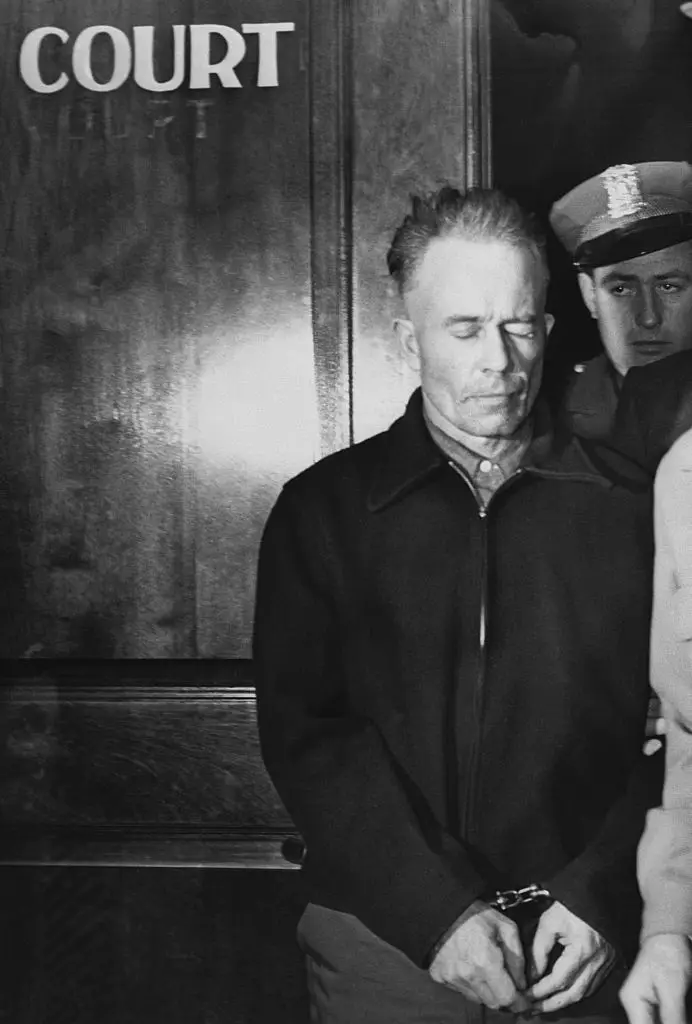
A forensic psychiatrist has explained killer Ed Gein's mental health condition, as the Netflix series starring Charlie Hunnam surpasses 90 million viewing hours.
Last week saw Ryan Murphy's latest season of his popular Monster anthology series hit our screens, with Sons of Anarchy star Hunnam bringing the story of Ed Gein, also known as 'the butcher of Plainfield', to a new generation.
Active in the 1940s and 50s, Gein killed two women and mutilated the corpses of nine others, using their flesh to build an array of household items before being apprehended for his crimes in 1957.
It was believed that he was responsible for more deaths, but Gein was unable to remember if he had carried out more murders.
Advert
The eight-part series has received a mixed response since its release, with fans calling out several inaccuracies in the episodes and its 'empathetic' depiction of Gein, his crimes and mental health.
Following his arrest, Gein lived out the rest of his days in a psychiatric facility after being declared unfit for trial, later dying from lung cancer in 1984.
Gein was diagnosed with schizophrenia after his arrest, which appeared to give the killer a deeper insight into why he committed the crimes.
The series also shows Gein hallucinating his mother's voice and experiencing numerous delusions, a detail which often confused viewers.
However, a forensic psychiatrist has now weighed in on Gein's mental state, suggesting that a schizophrenia diagnosis may not be considered accurate under the modern definition of the illness.

During a discussion about Gein with Reach Screen Time, Professor Paul E. Mullen explained how Gein was diagnosed from 'broad and outdated criteria' which may not be completely accurate.
"Contemporary reports describe him as shy, self-absorbed, and socially isolated, but with no evidence of persecutory delusions," he said.
According to Mullen's assessment, Gein's supposed hallucinations of his mother Augusta may have been a symptom of grief rather than schizophrenia.
"He heard his mother's voice after her death, a common experience in bereavement rather than a symptom of psychosis," the professor, who is the author of numerous books detailing the psychology of mass killers, explained.

"By modern standards, he would not meet criteria for schizophrenia or any psychotic disorder."
"His mother had a profound and enduring influence, instilling a fear of the sinful outside world and particularly of women," he continued.
"His devotion persisted after her death, motivating his attempts to contact her spirit. Gein claimed much of his grave robbing and possibly his murders were tied to this obsession.
"This relationship shaped both his psychological development and the extreme nature of his crimes."
Topics: Netflix, Ed Gein, TV and Film, Mental Health, True Crime, Crime